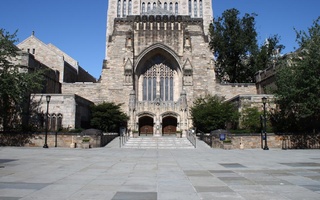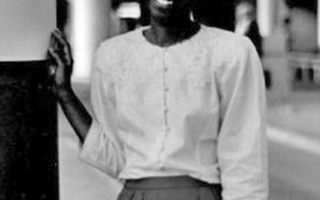In recent years, he has felt that evidence for kin selection beyond the eusocial ants, bees, and wasps has grown equivocal, and has admitted that he was mistaken in supporting it.
“The beautiful theory never worked well anyway,” he writes, “and now it has collapsed.”
In its place, Wilson poses a new theory of eusocial evolution called “group-selection” as the driving factor toward eusociality and altruistic behavior.
Group selection acts not on the traits of an individual organism, but on those of a well-defined group that can reproduce itself as a unit and compete with other groups of the same species. Eusociality is selected for through the formation of groups that come by chance to establish a defensible, communal “nest” and acquire mutations that diminish the instinct for dispersal. From these conditions develop eusocial traits like caste determination, division of labor, and communication. Wilson argues that only after these traits are established do groups of organisms begin to display the genetic relatedness attributed to kin selection.
In 2010, Wilson partnered with mathematicians Martin A. Nowak, who is the director of Harvard’s Program for Evolutionary Dynamics, and Corina E. Tarnita ’06 to present the theory of group selection in a “Nature” article titled “The Evolution of Eusociality.”
The response was not one of political furor, as in 1975, but of scientific outrage. In a promptly written rebuttal that contained nearly 140 signatures, Wilson’s colleagues protested that the paper was published on grounds of reputation rather than sound science.
“It was an A to Z of the most important people in social evolution, and they all think it’s bogus,” says OEB Lecturer Andrew Berry. “Kin selection has allowed for beautiful insights and has proven predictive power—it would be insane to throw it away.”
Even Richard Dawkins, one of Wilson’s greatest supporters, could not accept his change of heart. But co-discoverer of the DNA double helix James D. Watson—an early departmental rival whom Wilson once described as “the most unpleasant human being” he had ever met—has pledged his support, and remains unfazed by the controversy.
“Both Ed and I are old enough to know that there are critics—and then there are critics,” he says. “We were grown up before the time of political correctness so we’re not at all bothered by offending anyone—including each other.”
“In time we realized we even liked each other,” he adds with a laugh.
Perhaps it is Wilson’s age that allows him to take on the controversy with similar lightheartedness.
He has taken to paraphrasing Arthur Schopenhauer, as he did on this occasion, to describe how he shepherds young scientific ideas—first kin selection, and now its challenger, group selection—through three phrases.
“First, the truth is ridiculed,” he says. “Then it meets outrage, and then it is says to have been obvious all along. We’re currently in the outrage stage, but I think before long it will be obvious.”
PART SAINT, PART SINNER
In “The Social Conquest of Earth,” Wilson distills group selection into a single “iron rule” of evolution: selfish individuals will beat altruistic individuals, but altruistic groups will beat selfish groups.
Read more in News
Talk Commemorates Entomology BookRecommended Articles
-
No Motion On the SidelinesIn reflecting on my Harvard undergraduate career, possibly the most enlightening yet enduring experience has been my four year association
-
BOOKENDSA T THE age of five Bertrand Russell's favorite hymn was "Weary of earth and laden with my sin." At
-
 Yes, There Are Things To Do in New Haven
Yes, There Are Things To Do in New Haven -
Burstein’s ‘Kin’ a Stark, Realistic Adoption Story"Kin" is grounded in several upsetting hypotheticals. What if a child and his adopted parent don’t fit? What if the child’s birth parents still question their decision decades later?
-
 Class of '88 Chooses Commencement 2013 Chief Marshal
Class of '88 Chooses Commencement 2013 Chief Marshal -
 Stephanie D. Wilson
Stephanie D. Wilson













